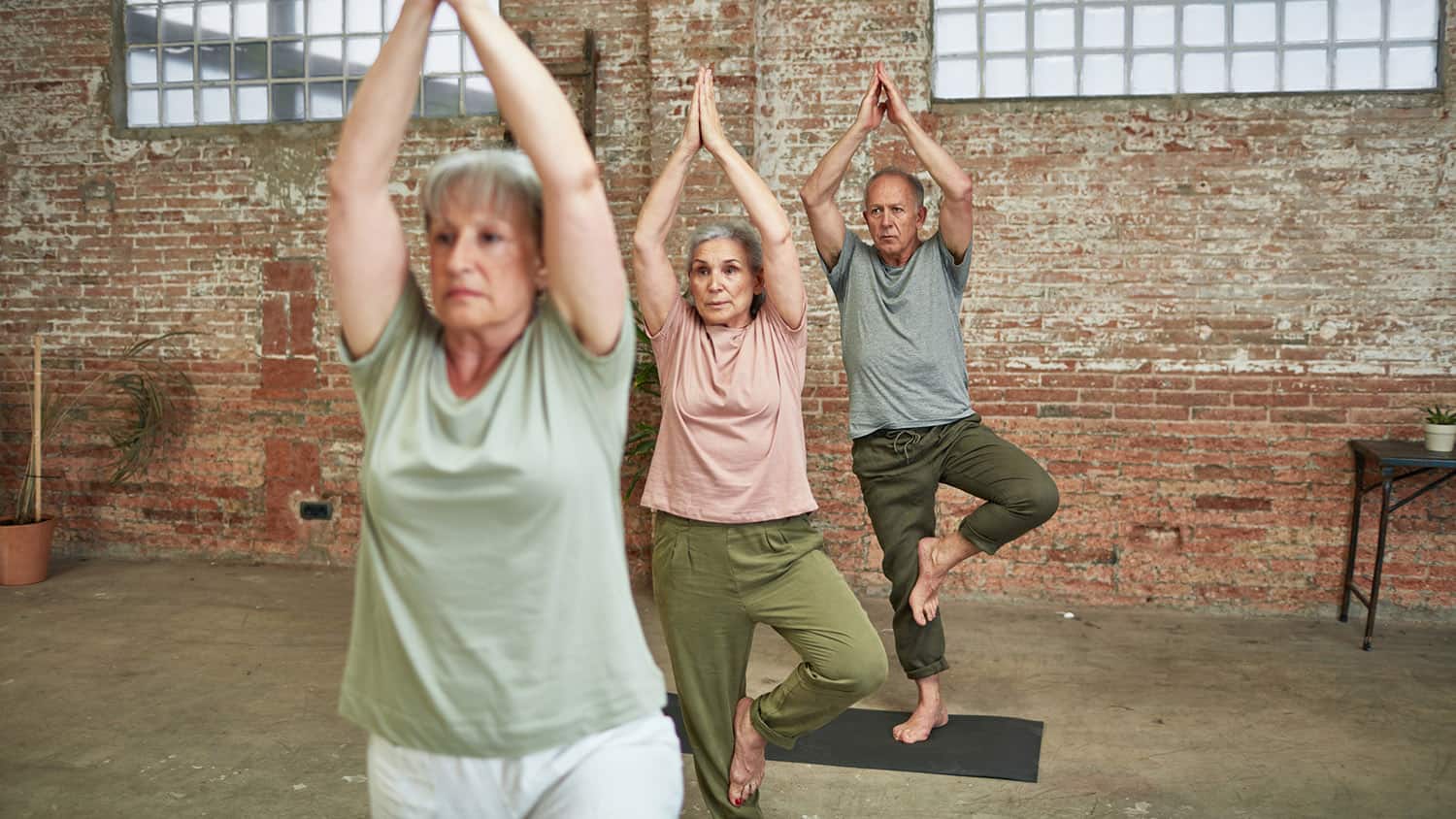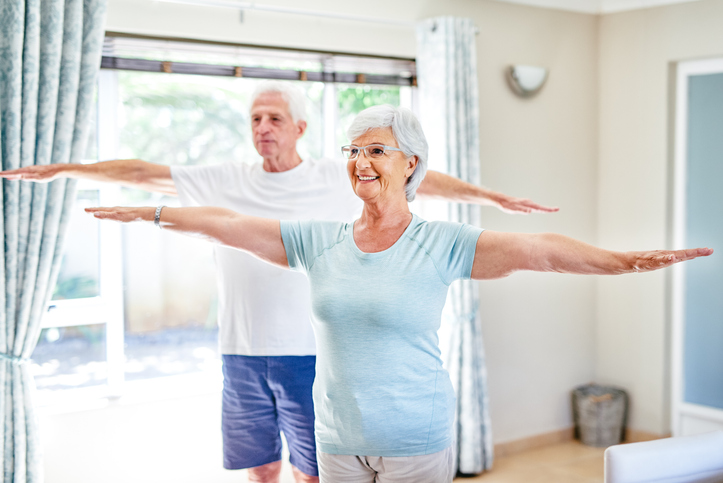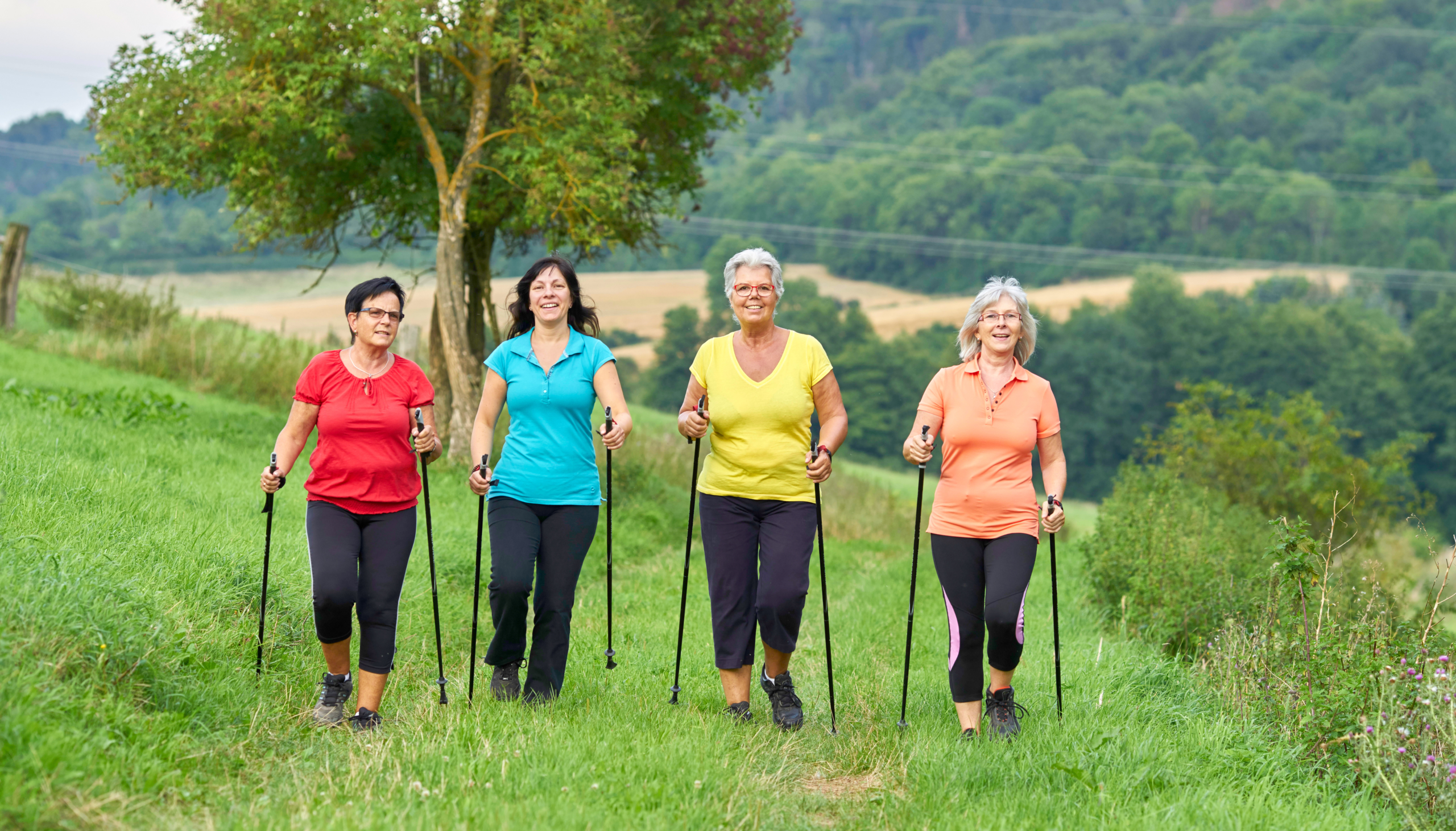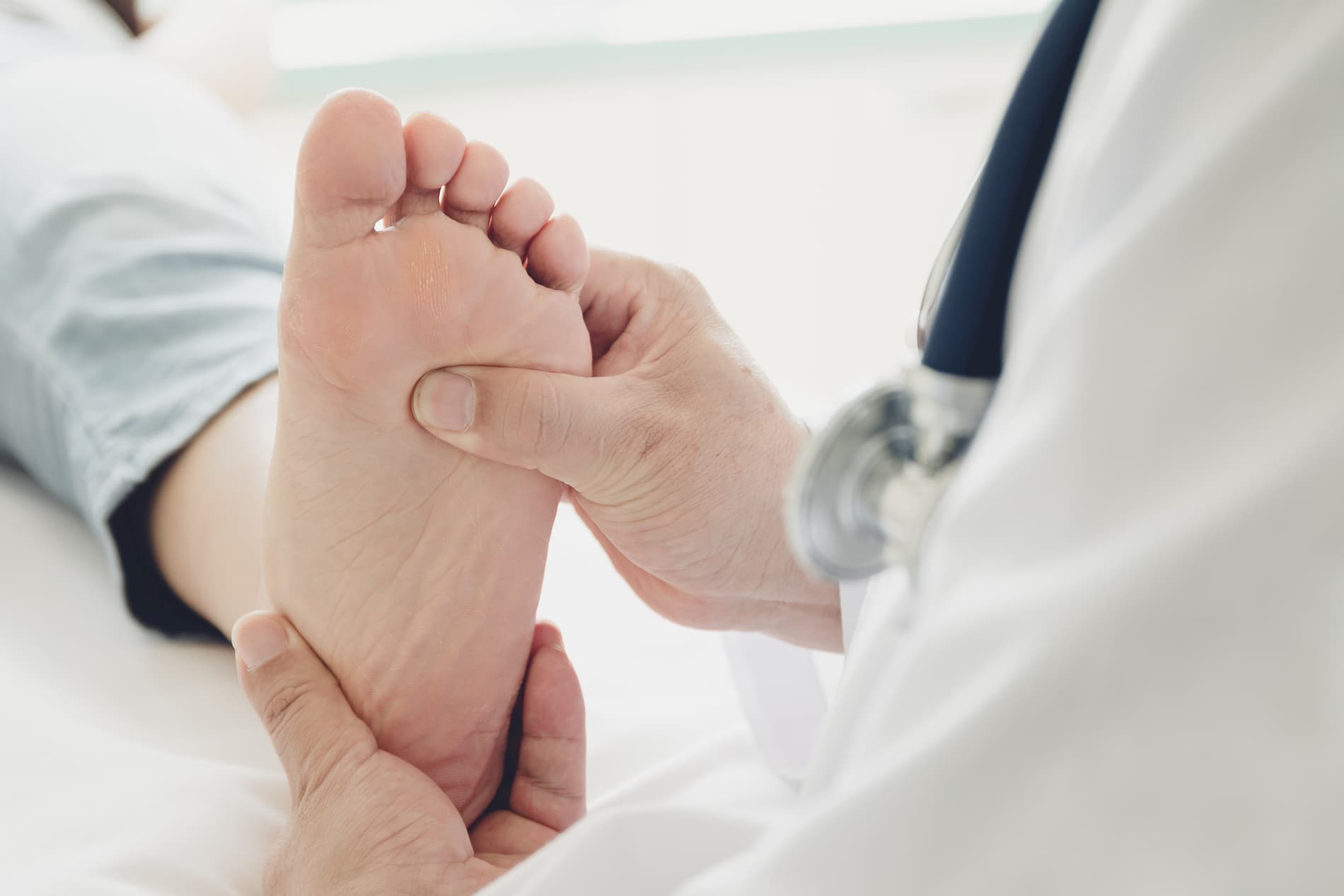Stay Balanced by Andrea Julius
ONE DAY, A SEEMINGLY SIMPLE EVENT COULD SIGNIFICANTLY CHANGE YOUR LIFE – SUCH AS TRIPPING ON A RUG, OR AN UNEVEN PAVING SLAB OR EVEN SLIPPING ON A WET FLOOR.
Many people who stumble, trip or fall, even if they’re not injured, become afraid of falling. This fear increases with age and may cause you to reduce everyday activities, reduce social interactions and impact on life’s simple pleasures. Becoming less active will cause your body to become weaker and as a result further increase your chances of falls.
It is a well-known fact that around one-in-three adults over the age of 65, have at least one fall a year. One-in-five of these falls will result in a serious injury such as a broken bone or a head injury (Journal of Trauma–Injury, Infection and Critical Care, 2001). This is not surprising, because from the age of 30 we have a natural, and slowly progressive reduction in our joint flexibility, our muscle mass, our reflex reactions as well as our balance mechanisms and eye sight. This issue has never been more relevant than during the COVID-19 Pandemic. Many people have reported a deterioration in their physical and mental health, with deconditioning being one of the primary results and thus a further increasing risk of falling. This is evidenced in the reported rise of falls rates during the pandemic period.
Are you / your friend or a relative at risk of falling?
- Do you feel unsteady or have a fear of falling?
- Have you fallen or stumbled previously?
- Do you sometimes feel dizzy?
- Do you fear, avoid or feel you need to hold on when approaching certain footpaths, ramps or stairs?
- Do you grab furniture at home to steady yourself?
- Do you need to push yourself up from a chair to stand up?
If you answered yes to any of the above, you may be at a greater risk of falling. You should have a review with your GP or with a Physiotherapist as there are often a multitude of reasons why people fall. Physios are trained to assess all the factors that can cause people to lose mobility and independence and there are many ways we can help to prevent falls from occurring.
Research has shown that even raising your awareness can help to reduce falls by up to 60% (BMJ Open Quality 2017). So don’t let a fall, or fear of falling, keep you from being active. Overcoming this fear can help you stay active, maintain your physical & mental health, and prevent future falls. The good news is, we are ready to help you at Physio on the River.
What will a Physiotherapy Falls assessment include?
- A history of your falls and general health
- Your general functional abilities like walking, stairs, and getting up and down from a chair will be reviewed
- Your overall muscle power will be assessed
- The range of movement in your joints will be identified
- Your ability to balance will be monitored
If necessary, we can visit your home to identify if we could make life easier for you with handrails or handles about your house. We also check for potential hazards like rugs, poor lighting or uneven surfaces.
After the assessment we will give you specific advice and help improve your strength, balance and function, aiming to work towards the goals most important to you. Worldwide clinical research (The Cochrane Review 2019) has proven that regular focused exercise can reduce falls rates by 23%. We also have a weekly ‘Balance and Strength’ specific exercise class targeted at falls prevention and maintenance of bone health or there are a variety of other exercises classes you can join. Alternatively, we can work with you on a one to one basis or just guide you as you progress. For 2022 we are offering a ‘Balance Package’ which includes an initial 1-to-1 assessment with Andrea before joining our new class which runs every Monday at 11.30am in our in-house studio.
So, if you are interested in a specific Falls Prevention Programme for yourself, a friend or a relative just call us on 020 9976 5690 or email us now.
Additional simple actions to help YOU prevent falls?
- Stay physically active
Aim for 30 minutes moderate activity, five times a week. This will improve your muscle strength, as well as keep your joints, tendons, and ligaments flexible. Weight-bearing activities, such as walking or climbing stairs, may slow bone loss from osteoporosis - Have your eyes and hearing tested
Even small changes may cause you to fall. When you get new eyeglasses or contact lenses, take time to get used to them and make sure they fit. Always wear your glasses or contacts and hearing aids when you need them - Regularly have your medication reviewed
If a drug makes you sleepy or dizzy, tell your doctor or pharmacist - Get enough sleep
If you are sleepy, you are more likely to fall - Limit your alcohol intake
Even a small amount of alcohol can affect your balance and reflexes - Stand up slowly
Getting up too quickly can cause your blood pressure to drop. That can make you feel wobbly - Keep your floors clear
Remove all loose rugs and clutter from your floors. Bathroom mats should only be used if essential and always have a non-slip backing - Assure good lighting
Make sure you have good lighting, especially at night if you need to get up - Look after your feet
Keep your feet comfortable, nails short and remove corns and calluses if required. You may consider visiting a chiropodist if you are unable to manage independently - You may benefit from a walking stick or assistance of a shopping trolley
If you feel unsteady or are limping due to an injury or pain, you may benefit from a walking stick or other aid, even if you only use it intermittently. Make sure it is the correct height. A physiotherapist can advise you. If carrying shopping bags throws you off balance, try using a shopping trolley - Be very careful when walking on wet/ icy or leafy surfaces
They can be very slippery! This includes indoor spills - Wear well fitted, non-slip shoes
Assure your outdoor shoes and home slippers are all well fitted, supportive, non-slip and low-heeled. Never walk on stairs or floors in socks or in shoes and slippers with smooth soles or no backs - Always tell your doctor or your physiotherapist if you have had a trip or fall, even if you were not hurt
A fall can be an alert to a new medical problem or problems with your medications or eyesight that can be corrected
———
About the Author
Andrea Julius is a highly qualified and experienced physiotherapist with a BSc (Hons) in Physiotherapy & MSc Advanced Neuromusculoskeletal Physiotherapy. She has worked extensively across London’s leading hospitals. This included working in Accident and Emergency, pain management, as an Advanced Physiotherapy Practitioner alongside a Spinal Orthopaedic Surgeon as well as teaching in both undergraduate and postgraduate physiotherapy courses. More recently Andrea was the clinical lead for an Osteoporosis and Falls service.
Further Reading & References:
www.aarp.org/health/healthy-living/info-2021/improve-balance






